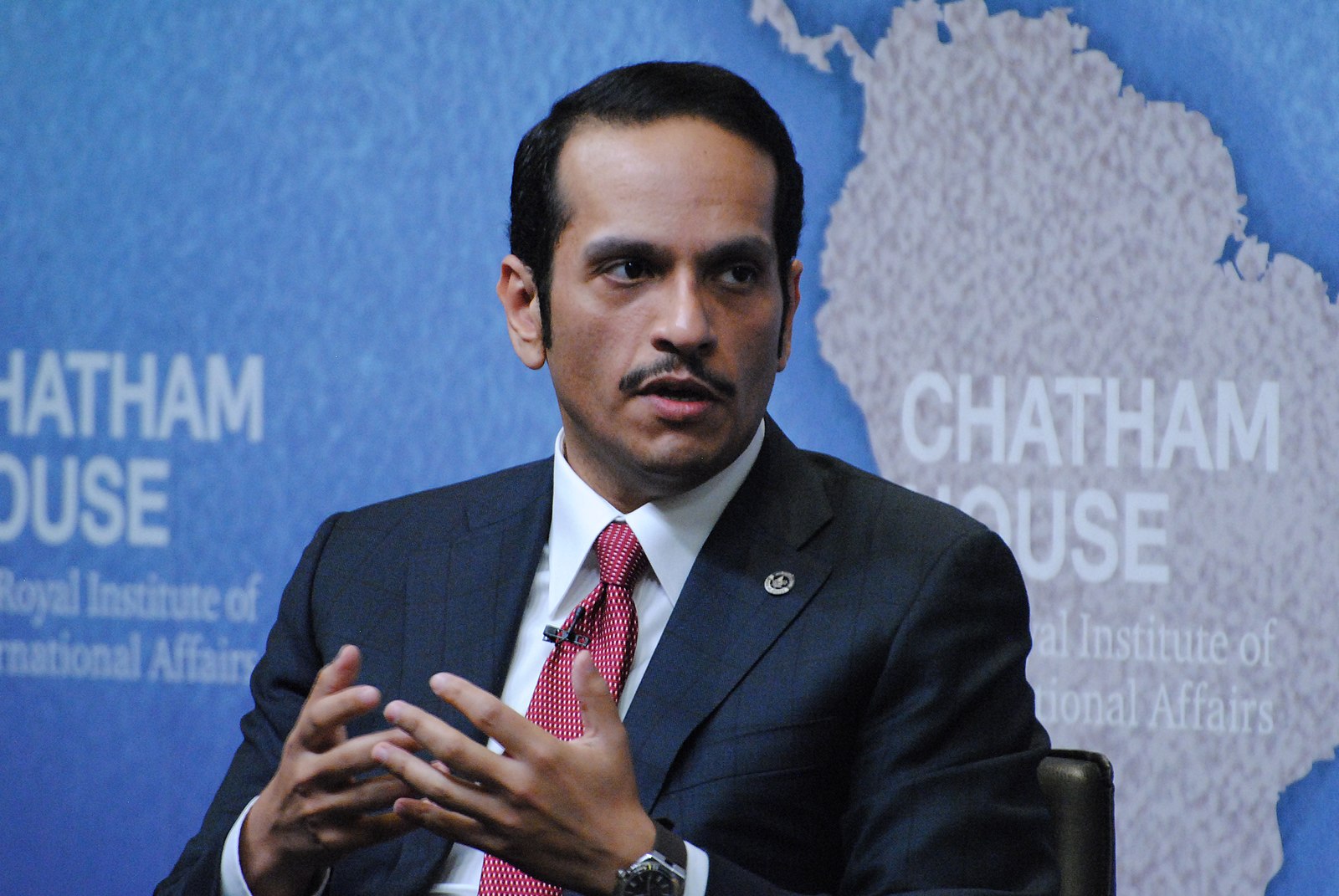The talks in Qatar could be a final opportunity for Iran and the US to save the landmark JCPOA.
Qatar said it welcomes the hosting of a round of indirect talks between Iran and the United States in Doha this week, the country’s foreign ministry announced on Tuesday.
The talks, under the European Union’s coordination, attempted to break a months-long impasse in negotiations to secure the revival of the 2015 nuclear pact.
The Ministry of Foreign Affairs “reiterates the State of Qatar’s full readiness to provide the environment that will help all parties achieve a successful dialogue,” a statement released on Tuesday said.
Doha has expressed its hope that the indirect talks will follow through bearing positive results that contribute to the restoration of the accord, formally known as the Joint Comprehensive Plan of Action (JCPOA).
Such a break through will help in “supporting and strengthening security, stability and peace in the region and opening up new prospects for wider regional cooperation and dialogue with the Islamic Republic of Iran,” the statement read.
On Sunday, adviser to the Iranian delegation of the nuclear deal, Mohammad Marandi, noted the transfer of negotiations from Vienna to Qatar is because “it is a friendly country,”Al Araby Al Jadeed reported.
Leading the negotiating team, Iran’s Deputy Foreign Minister and chief negotiator, Ali Bagheri Kani arrived in Doha on Tuesday, where he was greeted by Iran’s Envoy to Doha Hamidreza Dehghani.
Special Envoy for Iran Robert Malley met with Qatar’s Foreign Minister Mohammed bin Abdulrahman Al Thani to discuss their joint diplomatic efforts to “address issues with Iran,” the US embassy in Qatar said.
Reports in both Iranian and western media indicate that Bagheri Kani and Malley will meet with the Qatari foreign minister, separately.
Earlier on Monday, Iran’s foreign ministry said the talks will focus on issues on the removal of “anti-Iran” sanctions, which have been left unresolved since the Vienna talks.
The ministry also said that the upcoming discussions will be held indirectly with the US and that “nothing will be added or reduced from what has already been agreed on in Vienna,” the Islamic Republic News Agency (IRNA) said.
Tehran has always maintained the position that any agreement to revive the 2015 deal should result in the entire removal of the sanctions in a verifiable order.
The crucial gain from the JCPOA, for Iran, is the economic advantage promised under the original deal will be guaranteed during the negotiations, Iran’s Foreign Minister Hossein Amirabdollahian said.
The United Nations Secretary-General Antonio Guterres in his report on implementation of Security Council resolution 2231 warned against further delays and the lack of progress in diplomatic engagements to put the JCPOA back on track, urging Tehran and Washington to exhibit more flexibility in attaining a compromise ground on outstanding issues.
“I again call upon the United States to also lift or waive its sanctions as outlined in the Plan and to extend the waivers with regard to the trade in oil with the Islamic Republic of Iran,” Guterres said, while also calling on Tehran to return to full implementation of the JCPOA, according to IRNA.
The US State Department said Iran needed to decide to drop additional demands that go beyond the nuclear accord, Reuters reported.
“On substance, the two sides are still far away from each other,” Dr. Trita Parsi, Executive Vice President of the US think tank Quincy Institute told Doha News, adding that it is almost impossible that the new rounds of talks will resume in a quick manner “but it is important to keep diplomacy alive.”
“The Iranians may have to reduce some of their asks, but the US side also needs to show far greater political courage and determination if it wants to see the JCPOA renewed,” Dr Parsi added.
The news comes two days after EU Foreign Policy Chief Josep Borrell travelled to Tehran to meet with the Iranian foreign minister where the two sides announced an immediate restart of talks that had hit a deadlock since March.
Stalled nuclear talks
The negotiations appeared close to being finalised in March when the EU invited foreign ministers representing the accord’s parties to Vienna to seal an agreement after 11 months of indirect dialogue between Tehran and President Joe Biden’s administration.
However the talks have since been suspended. Tehran has requested that Washington remove its elite paramilitary Islamic Revolutionary Guard Corps (IRGC) from the infamous US Foreign Terrorist Organisation list, which enlisted the entity in April 2019, under the former Trump administration.
“Nothing is agreed until everything is agreed,” Iran’s Foreign Ministry Spokesman, Saeed Khatibzadeh, said on Monday.
The reigniting of the talks come as “instability in Europe following the Russian-Ukrainian conflict, which has been one of the factors causing world energy prices to surge,” remain geopolitical sticking points, Zaid Al Hamdan, Chairman of political consultancy group Armasite Group told Doha News.
“It is important to also look at the internal situation in the US, with the administration facing a cold war in Asia and weary of China’s growing power, containing public discontent at soaring prices impacting everyday Americans, facing a political battle from the GOP [Republican Party],” he added.
These factors further feed into the pressure points which have coerced the US to a shift in its foreign policy, demonstrating “less reluctance to deal with countries like Iran and Venezuela,” Al Hamdan argued.
“It is no secret that Qatar has already taken a mediation role between Iran and US governments—a revival of the nuclear deal will be an important step towards middle eastern stability, and stabilising energy prices—a win that this US administration desperately needs.”







